Established in 2007, the Hyderabad-based Bamboo House India envisioned the revival of traditional eco-houses that were gradually pushed towards oblivion due to growing urbanization in India.
With the capacity of generating over 500 million man-days of work every year, bamboo remains the soul of their entrepreneurial venture. Over the past decade, Bamboo House India has built over 160 bamboo houses across the country.
The brainchild of Prashant Lingam and his wife Aruna Lingam, Bamboo House India as a social enterprise has been providing sustainable economic opportunities to forest-based rural and tribal crafts-persons of the country.
In an exclusive conversation with LifeBeyondNumbers, Prashant Lingam spoke candidly about their tumultuous yet fulfilling journey so far and the upcoming days ahead.
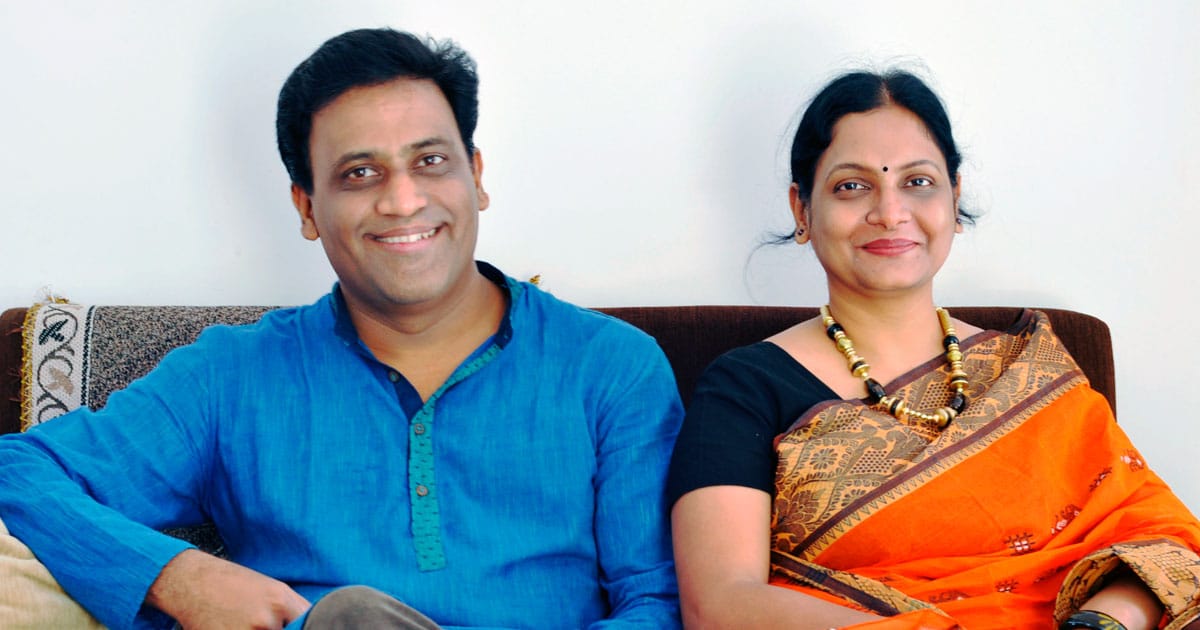
The Beginning
The seeds of becoming his own employer have been there inside Prashant since his childhood. “As a child, during my school days, I sought freedom and hated being bound by rules and regulations. Naturally, since then it was unthinkable for me to be answerable to an employer on every step of my way”, he recalls.
Having imbibed the leftist philosophy, rather than being merely profit-oriented, his understanding of entrepreneurship has been enamored by its social implications and the zeal towards social upliftment of the skilled forest artisans, unable to make their ends meet through the craft.
The conceptualization of Bamboo House India stemmed primarily as a part of buying household furniture, only three-months into Prashant and Aruna’s marriage in 2006. They found like-minded, curious, and creative partners in each other.
“In our quest to find the perfect sofa for our drawing-room, a new horizon of entrepreneurship was opened to us as we stumbled upon the sector, ripe with possibilities. Neither did we preplan coming up with a social enterprise nor did we have parental approvals initially”, Lingam explains the beginning of the couple’s entrepreneurial journey. A year later as they decided to go ahead with the social entrepreneurship, they had set out on the path of touring across the country in order to learn about the sector.
While surveying among one of the forest communities based in undivided Andhra Pradesh, they observed that despite having marvelous skill-sets, the craftsmen almost had been begging to sell their crafts at a nominal price just to feed the family for the day.
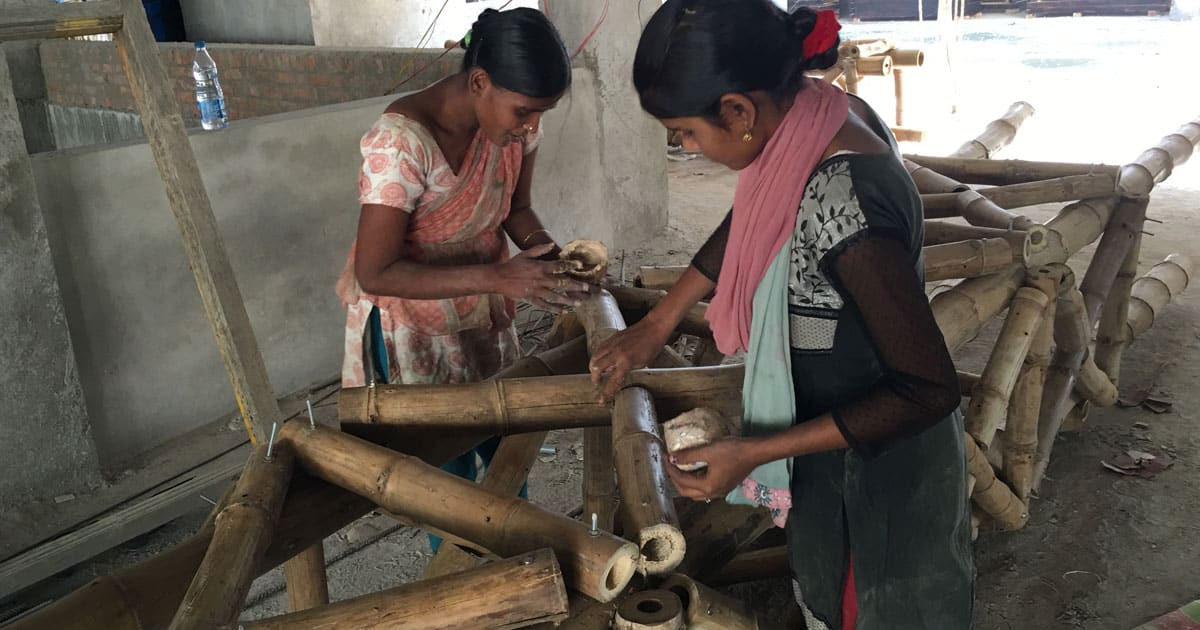
“We decided to intervene in the sector for bringing structural changes into the lives of these workers. We also realized that the artisans require an entrepreneurial conduit for enabling them to produce profitable products instead of smaller crafts and introducing these to the market”, Prashant says resolutely.
Failures Paving Ways To Success
It was roughly around 36 months into the business, Prashant and Aruna faced one of the direst situations, both entrepreneurially and personally. With no guidance, amid the dearth of a full-proof business model, they had not only expended all their saved resources but also were under huge debts of close to rupees 60 lakhs.
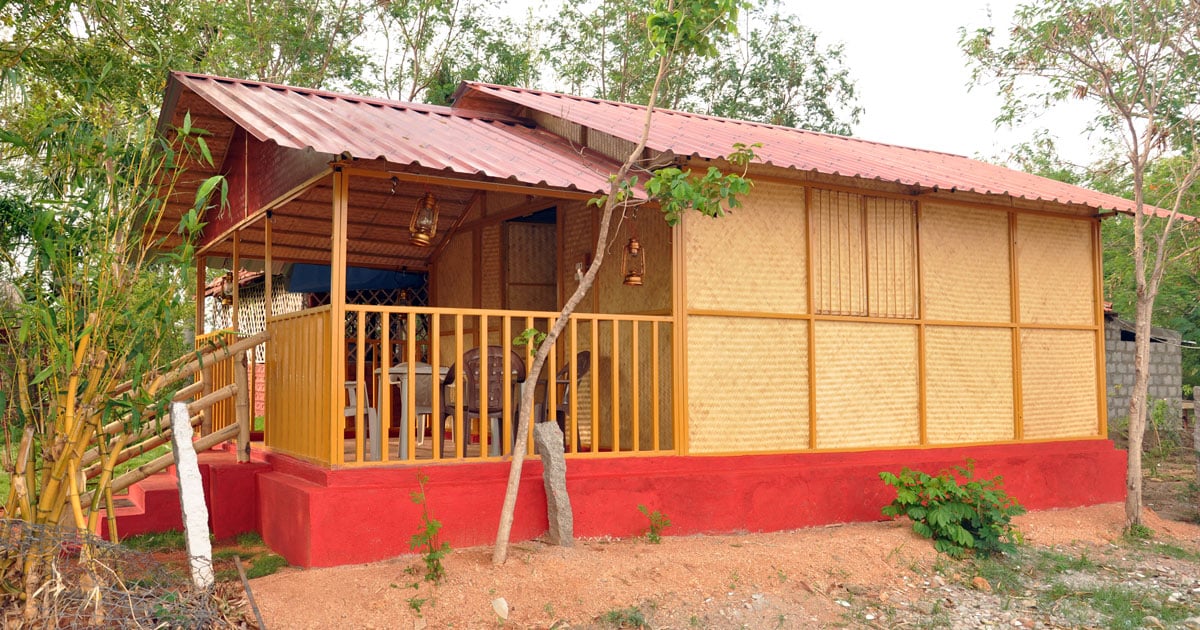
“Operationally, we came to a stand-still with no order coming in yet the investments being made already and the lenders were banging our doors. On the personal front, within a span of only those 36 months, we lost six of our loved ones. On top of it, I was grappling with the grueling effects of an accident on my way to recuperation and Aruna also was unwell due to her post-pregnancy complications for almost a year and a half”, Prashant painfully recounts.
The situation was so calamitous for the family that they had neither something to eat at home, nor electricity owing to their inability to pay the electricity bill. Every time they attempted to get back on their feet during the course of those 36 months, they were slapped with more difficulties to deal with.
The fortune turned its course for the Lingams when a Hyderabad-based client reached out to them for a bamboo house project which was only to be stalled due to the client’s lack of trust about the durability of the product. Learning about his intention to back out, in order to convince him, a desperate Lingam took no time to commit to him being paid post-production and only if the end result is up to the customer’s satisfaction.
“We either had no idea what we were doing or were too desperate to get a chance to prove ourselves in the market. Somewhere out of sheer desperation, we thought of giving life a shot before taking drastic steps. Just for the sake of the project, we convinced three of our employees to run the project in exchange for merely their daily wages and arranged a workshop for product assembly”, Lingam recounts ruefully.
As the Lingams were clinging on to the last twig of their hopes, the end product not only turned out to be extremely well-constructed but also earned a good reputation for the bamboo houses in the region. Due to the captivating effects of bamboo as a construction material, it caught plenty of eyeballs and it was only a matter of time that the enterprise was building recreational bamboo houses at the behest of prime corporate houses like Google and Infosys.
“The best part of this project was, it was on the sixth floor of the building and hence, the aerial view of it from all the terraces gave it a pristine look. Thereafter, we never stopped building bamboo houses”, he says.
Undoubtedly, Lingam’s best learnings have come from the toughest times that he had faced. It not only turned him philosophically inclined but also led him to realize the futility of hankering after material well-being.
“Life has humbled us in ways more than ever. We strive for happiness more than success- happiness that both fulfills our entrepreneurial desires and caters to the needs of the artisans. Less bothered with numbers per se the focus of ours remains on artisan welfare and passing the knowledge base to the newer generations to come”, Prashant invokes deep thoughts.
An Innovative Business Model
With the current organizational strength of 20 permanent members, based in Hyderabad, Bamboo House India further expanded its reach among the members of the forest communities, particularly among the artisans in Assam, establishing an intriguing business model.
Also read:
With Rs.2000 A Liter, Donkey Owners Are Milking To A Better Life, Thanks To An Idea Of This 24-YO
With an aim of building eco-houses made of bamboo, the organization employs thousands of artisans from villages including women on a part-time basis ensuring their livelihood and a better standard of living.
“From harvesting to crafting, the massive operational activity the organization has outsourced the work with occasionally the entire village being involved with it. We use bamboo boards for the walling, flooring, and ceiling of these houses”, Lingam tells LifeBeyondNumbers.
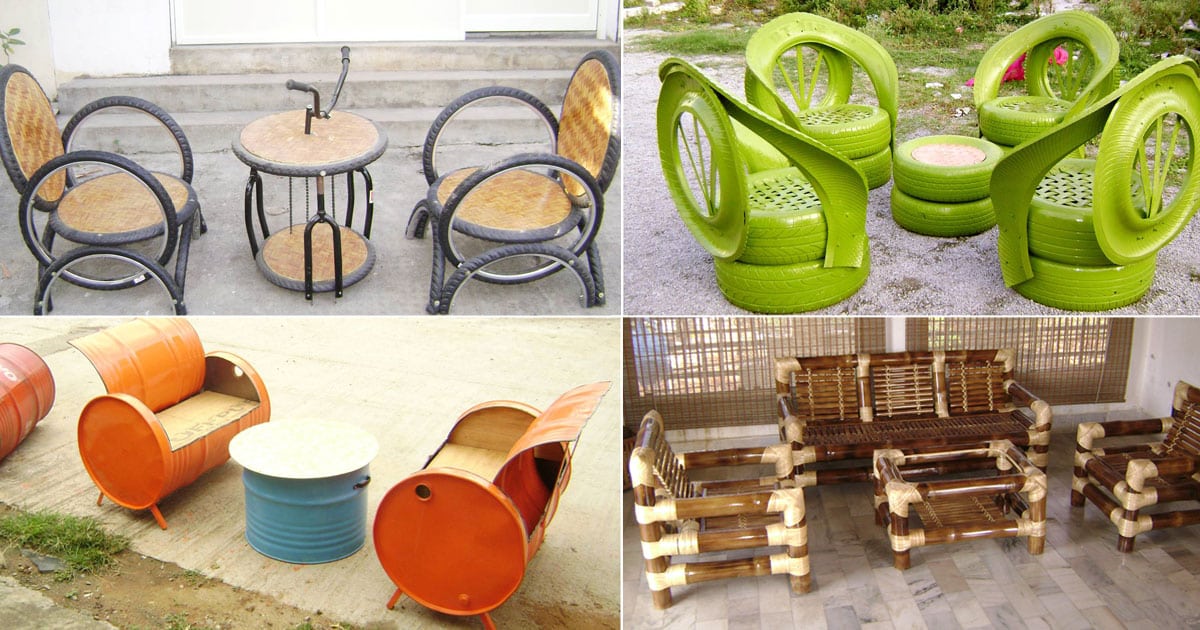
While men members of the community are into cutting bamboo as the primary raw material, women members are responsible for weaving bamboo mats, before these mats are sent to machine presses of designated plywood factories that are in liaison with the organization. Per mat, at least, a hundred rupees is paid to the artisans and because of the part-time nature of the work, they can also be involved in other economic activities simultaneously and per board, the artisans get paid around Rs.900/- and one bamboo house of 250 sqft consumes around 30 mats i.e each artisan gets paid around Rs.27,000/- as a part-time job.
While a mediating agency is responsible for procuring these bamboo products, Bamboo House India is responsible to consume the material produced. “The fundamental ethos behind this business model has been coherent piecemeal processes to ensure working independently yet together in consonance with each other”, in Prashant’s words.
Bamboo As A Construction Material
“Since most of these activities take place on the North-Eastern high terrain with heavy rainfall, the forest act does not permit bamboo harvesting between June and December. Despite these hurdles, we have learned to live with it”, Lingam says emphatically.
With the cost per square feet touching up to 700 -800 rupees for building these eco-friendly farmhouses, Bamboo House India retains its client base among the middle and upper classes, with currently most of the projects taking place in and around Hyderabad and some in Tamil Nadu. After the completion of the entire activity of production, the stocks come to Hyderabad for assembling.
“As a grass bamboo typically grows faster, at a pace of at least two to three inches every day, making it harvestable within three to five years, as compared to trees that are used producing woods. With an average lifecycle of 45 years, one bamboo plantation can be harvested at least 3 to 5 years and the general life span of a bamboo clump is 48 years, making the raw material easily affordable as well as minimizing the consumption of cement and steel in the process of building these eco-houses”, he explains the efficacy of bamboo production.
Though it has been not more than 14 years of being actively engaged in the field of bamboo crafting with their oldest bamboo house merely 10 years old, Lingam confidently derives from the globally available data that the bamboo houses may last over 30-years enduring the growing effects of climate change.
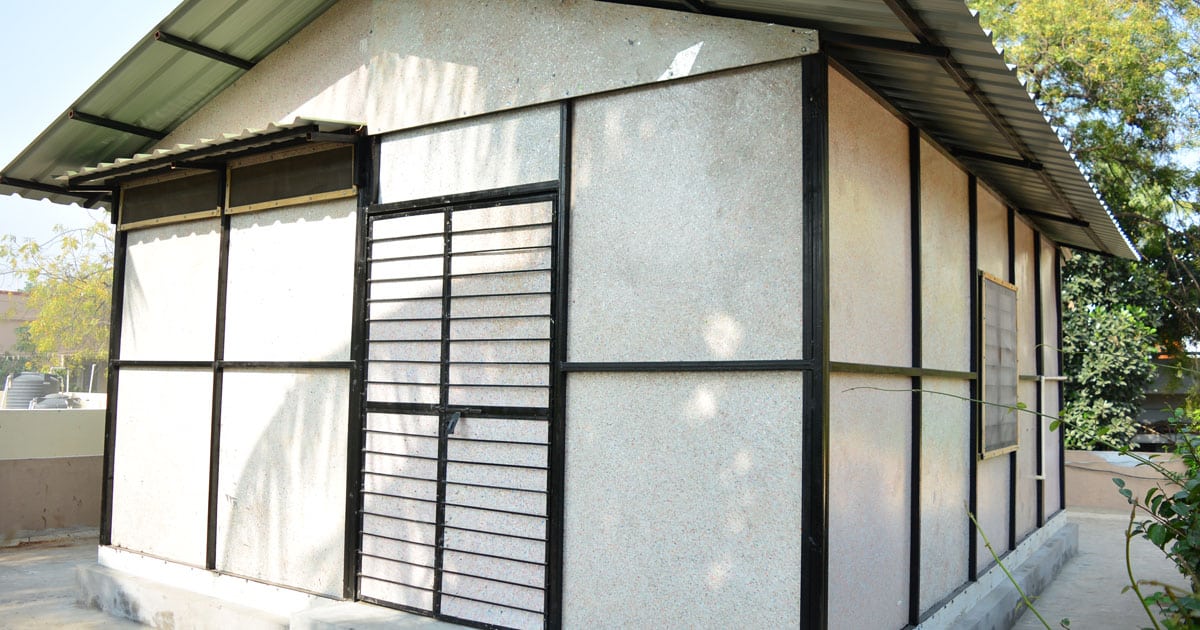
In fact, keeping the storm-prone zones of India’s southern coasts in mind, Bamboo House India devised a technique of using metal skeletons for these houses to ensure their durability in the face of a wind-speed up to 100kmph. With higher ductile strength as compared to various grades of steel and a greater weight-to-steel ratio as compared to graphite, the durability of bamboo as a construction material is unquestionably more than what is commonly imagined.
Milestones Achieved
While the business model seems fascinating, the secret behind the advent of the successful model has been the series of trials and errors making failure the key to their success. From rags to riches, during the process, the wisest take away for the enterprise has been not to give up and wait for the right time for things to get shaped up.
When they first stepped foot into the venture, one would have hardly come across information related to bamboo crafts online. But as a result of their relentless hard work for over a decade, they have developed a platform for dissemination of information, to create a knowledge base and share their learnings with those willing to get into the sector.
“It took a lot of our efforts in commercializing bamboo houses which in turn inadvertently benefitted the forest-based communities economically and helped the city-dwellers of the country to stay close to nature”, says Prashant.
The Road Ahead
As Lingam’s spirit remains indomitable, so remains his insatiable endeavors to challenge the norms. With innovation and eco-sustainability being the key thematic of Lingam’s entrepreneurial worldviews, Bamboo House India has recently been delving into the field of plastic waste management as they make furniture and houses from recyclable plastic wastes.
Among other things, they use single-use multi-layered plastics (MLP) usually used for food packaging purposes and turn them into furniture and houses. So far, the number of plastic houses within the past two years has been as high as 55, including government projects.
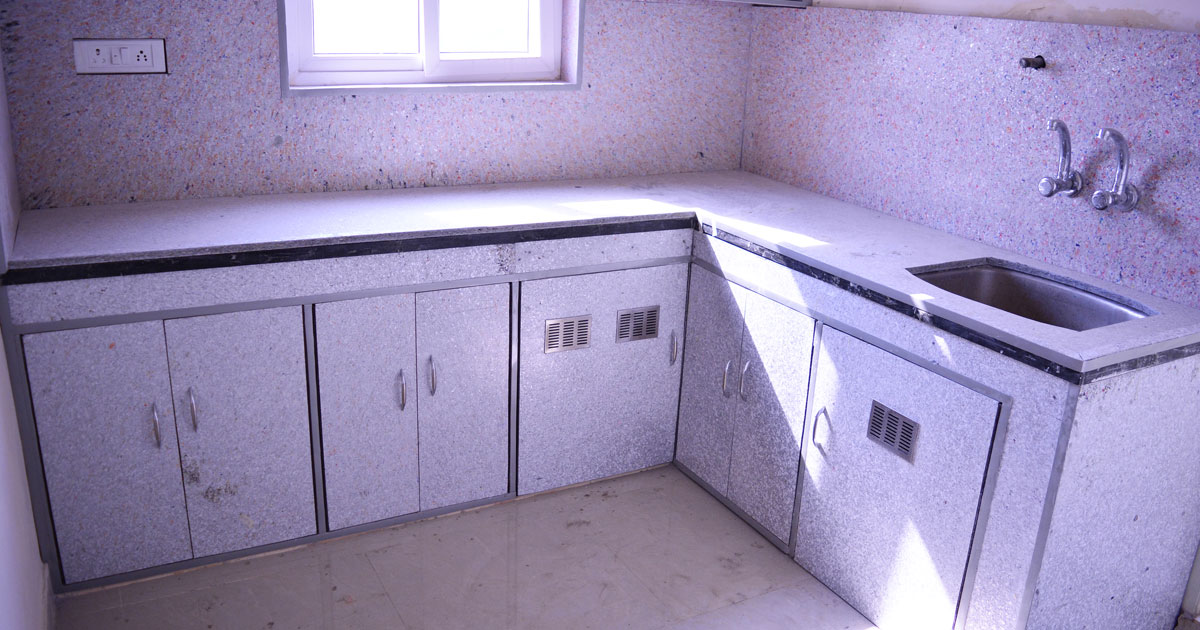
“As we cleared our debts and things stabilized, a few years back we had the opportunity to innovate in the waste management sector ensuring sustainable reuse of abandoned plastic wastes. The best part about this sector has been that while working on the business model we invented multiple furniture products made of plastics. Even though our specialization remains specifically on bamboo crafts, we have been coming up with the plastic management model only to pass it on to someone laying focus on the sector”, Prashant explains the plan ahead.
While the sector itself bears huge potential, convincing people into accepting houses and furniture, made out of wastes, is not easy and thus, Lingam hopes for government and media efforts into both breaking the taboo against it and mainstreaming it.
“While government efforts may convince people into emulating such houses, media may generate awareness among them. Not only is the material amply available, but also the end products, made out of plastic wastes, are both durable and beautiful. The only thing it awaits is an open mind to accept it”, says Lingam optimistically. In fact, in the upcoming years, Bamboo House India is also working towards developing their own machines for production.
“The machines, we use to process our plastic, are extremely expensive and may cost up to rupees 2 crores. Hence, we are intending to create smaller models that may cost between 5 and 10 lakhs. This may also serve the purpose of establishing a women’s self-help group generating employment opportunities amid the Covid situation through the interventions of the municipal, collectorate, or corporate funding. Our goal would be to connect these workers with the mainstream and online marketplaces and facilitate the sale of their finished products,” he adds.
Needless to say, due to the pandemic, the bamboo line of production has taken a significant hit, and thus, to allow recuperation from these difficult times Bamboo House India is keen on producing smaller bamboo products unless house productions are back on-track.
While society puts failures in a bad light, Prashant Lingam and Aruna Lingam turned their wheels and take it as learning experiences. While there has been an insurmountable amount of pressure, especially in an age of social media, to wear success on one’s sleeves, Lingam hopes the people to help each other by putting aside the negativities.
“The failures are to be treated with respect as are successes celebrated”, Prashant says. Striving with faith for a purpose in life is what makes one move past his/her failures and Bamboo House India, under the aegis of Prashant and Aruna, proves it yet again.

